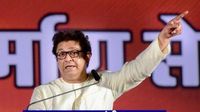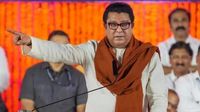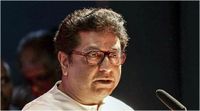Maharashtra Navnirman Sena (MNS) chief Raj Thackeray has called on party workers to pause their agitation for the compulsory use of the Marathi language in banks and other establishments. This directive comes amidst a backdrop of rising tensions and aggressive actions by party members demanding the implementation of Marathi as a mandatory language in various sectors.
On April 5, 2025, Thackeray issued a letter to his party members stating, "There is no issue in halting this agitation now because we have created enough awareness of the issue." He emphasized the need for the government to uphold the law regarding the use of Marathi across Maharashtra. Thackeray's decision to pause the movement comes after a series of confrontations involving MNS workers and bank employees, which have drawn considerable public attention.
This situation escalated following Thackeray's Gudi Padwa rally on March 30, where he reiterated the party's stance on making Marathi mandatory for official purposes. The rally was marked by strong rhetoric, with Thackeray urging attendees to fight for core issues and check whether Marathi was spoken in banks. He stated, "Look at Tamil Nadu and Kerala. They are opposing Hindi imposition. We are giving them a red carpet." This statement reflects the party's broader agenda of promoting regional languages and culture.
In the days leading up to Thackeray's announcement, incidents of violence linked to the Marathi language movement were reported. MNS workers were involved in an altercation with a bank manager in Lonavala, reportedly assaulting him for not speaking Marathi. Additionally, a video surfaced showing an MNS worker attacking a security guard in Powai for the same reason. These incidents have raised alarms about the aggressive tactics employed by some party members.
Hours before Thackeray's call to pause the campaign, MNS Mumbai unit chief Sandeep Deshpande issued a stark warning to non-Marathi speakers, stating, "Those who don’t want to speak in Marathi can leave Maharashtra. Otherwise, we will show these Maharashtra traitors their place." This inflammatory comment has fueled fears of further violence and discrimination against non-Marathi residents.
In response to the growing unrest, Deputy Chief Minister Devendra Fadnavis has promised that strict action will be taken against any unlawful behavior. He stated, "We will not allow anyone to take the law into their hands," referring to the actions of MNS workers. Fadnavis's remarks highlight the government's commitment to maintaining order and protecting the rights of all citizens, regardless of their linguistic background.
Thackeray's recent statements also acknowledged the Reserve Bank of India's (RBI) guidelines, which mandate the use of regional languages in certain banking operations. He argued that the government should implement these rules to ensure that Marathi is used appropriately in official communications. Thackeray's alignment with the RBI's policies suggests a strategic approach to his party's demands, framing them within the context of existing regulations.
Despite the pause in the agitation, Thackeray urged his party members to remain vigilant and focused on the issue. "Halt the agitation for the time being but do not let focus go away from it," he instructed. This call for continued awareness indicates that while the immediate confrontations may be on hold, the underlying tensions regarding language and identity in Maharashtra remain unresolved.
The MNS's campaign for the mandatory use of Marathi has sparked a broader discussion about regionalism and identity in India. As states like Maharashtra grapple with the implications of linguistic diversity, the actions of political parties like the MNS will likely continue to shape public discourse. The party's aggressive tactics have drawn criticism, but they also resonate with a segment of the population that feels strongly about the preservation of their language and culture.
In light of these developments, it remains to be seen how the Maharashtra government will navigate the complexities of language politics. The balance between promoting regional languages and ensuring the rights of all citizens is a delicate one. Thackeray's pause in the agitation may provide a temporary respite, but the fundamental issues at play are likely to resurface as discussions about identity and language continue.
As the situation evolves, both the MNS and the Maharashtra government will need to address the concerns of all stakeholders involved. The future of language policy in Maharashtra hangs in the balance, influenced by the actions of political leaders and the sentiments of the public.







